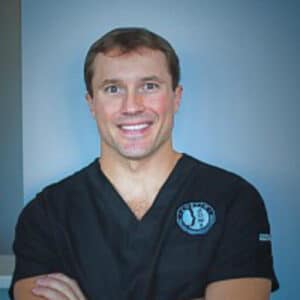
Maxillofacial Surgeons: Unsung Heroes of Facial Health and Harmony – Insights by Dr. Mark Austin
Behind every healthy and harmonious face lies the skillful work of maxillofacial surgeons, often working quietly but significantly in the background. Dr Mark Austin shines a spotlight on these unsung heroes who are dedicated to ensuring the optimal health and functionality of facial structures. In this article, we’ll explore the multifaceted roles of maxillofacial surgeons and their indispensable contributions to overall well-being.
Dealing With Diseases:
Maxillofacial surgeons exhibit expertise in diagnosing and treating a diverse range of diseases related to the oral and maxillofacial region. From benign cysts and tumors to potentially malignant disorders, oral cancer, salivary gland diseases, and complex infections, these surgeons navigate the complexities of various conditions to provide effective treatment.
Managing Trauma and Corrective Surgery:
Addressing facial trauma is a core responsibility of maxillofacial surgeons, encompassing fractures of the jaw or facial bones, soft tissue injuries, and complex dental avulsions. Additionally, they excel in performing corrective and reconstructive surgery to address congenital or acquired deformities that may affect the jaws and face, contributing to both function and aesthetics.
Intervening in Infections:
Maxillofacial surgeons are often the first responders in managing serious oral, head, or neck infections. Their expertise allows them to handle emergencies promptly, ensuring that patients receive the necessary care to mitigate the impact of infections on overall health.
Specialized Care for Functional Issues:
Beyond emergencies, maxillofacial surgeons play a crucial role in addressing functional issues. This includes interventions for conditions like sleep apnea, which disrupts breathing during sleep, and temporomandibular joint disorders that affect jaw movements and cause pain. Their specialized care aims to enhance patients’ quality of life by addressing functional challenges Dr Mark Austin.
Aesthetic Surgery:
In addition to addressing medical concerns, maxillofacial surgeons contribute significantly to facial aesthetics. Their expertise extends to performing procedures like rhinoplasty, orthognathic surgery, and facial asymmetry correction, enhancing both the form and function of facial structures.
Dental Interventions:
Maxillofacial surgeons play a pivotal role in various dental procedures, from complex tooth extractions to the management of impacted teeth, placement of dental implants, and bone grafting. Their involvement is crucial in multidisciplinary care, especially for patients requiring dental rehabilitation as part of treatment for conditions like oral cancer or cleft lip and palate.
Maxillofacial Surgery Training: Taking a Deep Dive:
To become maxillofacial surgeons, individuals undergo extensive and rigorous training. After completing dental school, aspiring maxillofacial surgeons embark on a demanding residency program lasting 4-6 years. The comprehensive curriculum includes areas such as general medicine, general surgery, anesthesiology, otolaryngology, plastic surgery, emergency medicine, and, of course, oral and maxillofacial surgery.
Conclusion:
Maxillofacial surgeons are the unsung heroes diligently working to ensure the health, function, and aesthetics of facial structures. Through their expertise in diagnosing and treating diseases, managing trauma, intervening in infections, addressing functional issues, performing aesthetic surgeries, and providing dental interventions, these professionals contribute significantly to the overall well-being of their patients. Dr Mark Austin emphasizes the vital role maxillofacial surgeons play in enhancing both the health and beauty of our faces through years of rigorous training and dedicated practice.